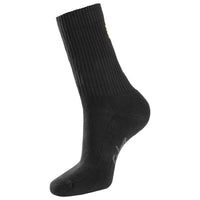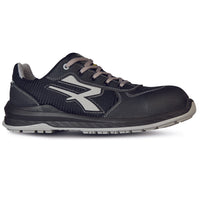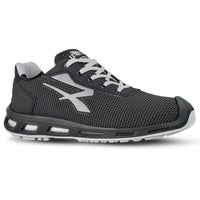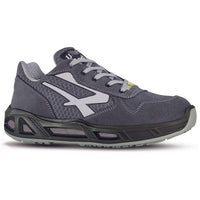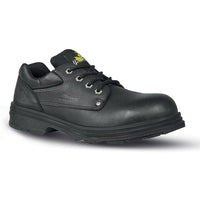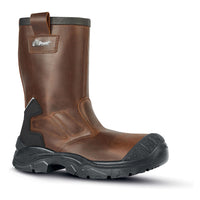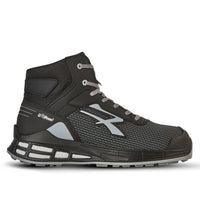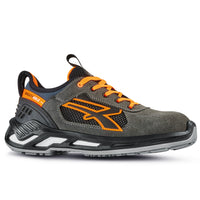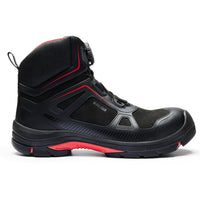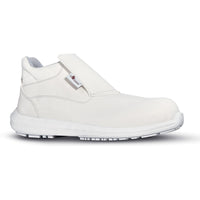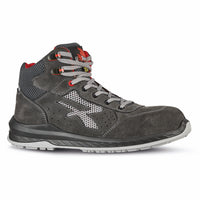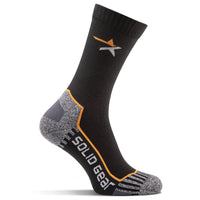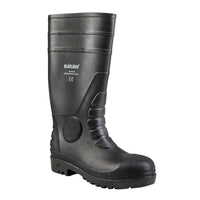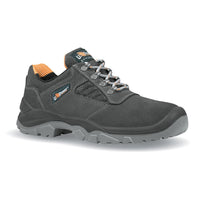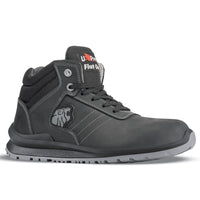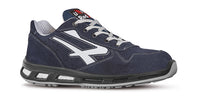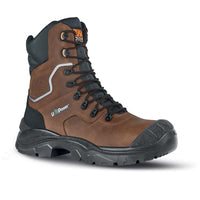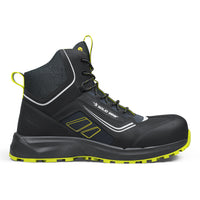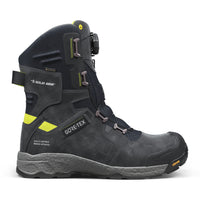Quality Boots & Safety Footwear - Work Boots , Safety Shoes & Trainers.
Safety footwear is one of the most important pieces of PPE and is often overlooked. When purchasing safety footwear many people start by looking for popular brands, but often these brands do not offer adequate protection for the task at hand.
At Start Traffic we have a wide range of safety footwear from insulating footwear to keep your feet warm, to waterproof safety boots to keep your feet dry in wet weather. Our range of stylish work boots and safety trainers all have their own specific safety features which all work together to keep your feet comfortable and safe throughout the working day.
Key Features Of Our Work Boots
- Great Comfort
- Meet EN and BS Standards
- Offer Great Protection
- Stylish Design
- Quality Materials
- Highly Durable
How Do I Choose The Right Safety Shoes?
Many of the work safety boots we have in our range are tailored specifically to certain jobs or environments. If you work in outdoor environments with very rough, uneven terrain, you would greatly benefit from a work boot with ankle support and a largely cleated soleplate for extra grip. Before selecting your footwear, we recommend evaluating your needs and requirements and looking specifically for the boot to fit that rather than which boot you prefer the look of. Some things to think about are;

"Do I need toe protection?"
All of the safety boots in our range come with protected toe caps however, there is different types of toe caps available in different styles such as; Ceramic Composite, Aluminium and traditional Steel toe caps.

"Do I require thermal insulation?"
If you work in cold conditions and require protection from cold environments, you will want to look for the 'HI' or 'CI' markings.

"Do I usually work on uneven surfaces?"
When working in environments with uneven surfaces, the risk of an ankle roll or injury through misstep becomes higher. If this is the case you will want to look for ankle-boot style footwear which offers greater support to the ankle area than trainer style footwear.

"Do I work in electrostatically sensitive environments?"
When working in electrostatically sensitive environments, it's important you have footwear that will keep you safe. These are a few of the technologies available which help with this which you should be looking for.

"Do I work in wet or outdoor environments?"
If you work in wet or mostly outdoor environments, you may want to consider a water-resistant safety boot. Look out for the 'WR' or 'WRU' as a starting point when looking for this type of footwear.
When trying to figure out what is the correct level of protection you need, you will need to think about the type of environment and jobs they will be used in. For example, a carpenter will benefit greatly from a work boot with higher nail perforation protection whereas a dock worker may benefit more from a higher level of toe protection.
How Do I Correctly Clean My Work Boots
Keeping your footwear clean will go a long way in keeping the lifespan of them as long as possible, it is important to clean them regularly and thoroughly, especially in the winter months. Poor care of work boots can lead to rapid deterioration to the structure of the work boot and a dip in performance of the technologies within the boot.
The best way to clean your footwear is to dry brush any excess dirt or mud off of the footwear then use a damp brush on them with a soapy water solution. To correctly dry your footwear it is best to air dry them overnight. Drying them using a hair dryer or radiator can lead to bad smells and potentially damage the shoe.
Safety Shoe EN ISO 20345:2011 Standard, What Does It Mean?
In order for footwear to be classed as safety footwear, it must meet the EN ISO 20345 specification. This is a standard all safety footwear has to meet to be able to be classed as personal protective equipment which in short means it has a protective toe cap which is able to withstand 200J of pressure (roughly 20kg falling from 1m).
Steel Toe Caps are becoming a thing of the past, companies like Sixton Peak have developed lighter Aluminium toe caps and even Ceramic Composite toe caps which are non conductive and can last longer than traditional steel toe caps, they are also lighter than aluminum toe caps.
There's also some additional ratings which contribute towards the standard which you will see in the titles of some safety boots, trainers and shoes:
Slip Resistance Testing
SRC rating is a score given to a soleplate through combination of SRA and SRB testing. SRA testing is the grip level on a ceramic floor with a detergent solution whilst SRB testing is on a steel surface with a glycerol solution.
Whilst the SRC rating is important, it is also vital you remember that surfaces also have their own slip rating and even the best rated footwear will lack grip on a surface with a poor rating.





















